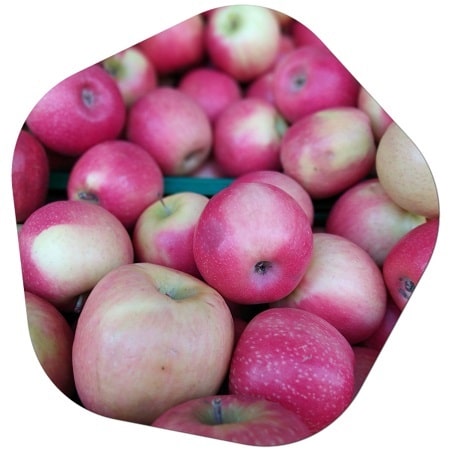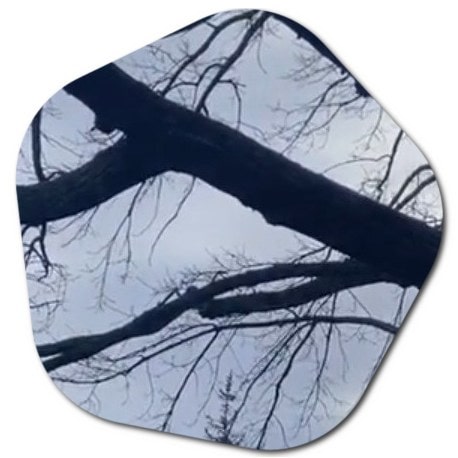What fruits grow in Manchester?
In Manchester’s climate, a variety of fruits can be grown successfully. While the region’s cooler climate and shorter growing season can limit fruit options compared to warmer areas, there are still several fruits that can thrive in Manchester. Here are some fruits that can be grown in Manchester:
- Apples: Apple trees are well-suited to Manchester’s climate. There are many apple varieties available, including dessert apples and cooking apples. Look for varieties that are known to be hardy and suitable for the region.
- Pears: Certain pear varieties can also be grown in Manchester. Choose varieties that are suitable for cooler climates and have good disease resistance.
- Plums: Plum trees can thrive in Manchester’s climate. There are several varieties available, including dessert plums and cooking plums. Look for self-pollinating or partially self-pollinating varieties to ensure fruit set.
- Blackberries: Blackberry bushes can be successfully grown in Manchester. They are hardy and produce abundant fruits. Consider growing thornless varieties for easier maintenance.
- Raspberries: Raspberries are another fruit that can be cultivated in Manchester. Both summer-bearing and autumn-bearing varieties are available, offering different harvest times.
- Strawberries: Strawberries are a popular fruit that can be grown in Manchester. They can be cultivated in the ground or in containers, making them versatile for various gardening spaces.
- Currants and Gooseberries: Currant and gooseberry bushes can be grown in Manchester’s climate. They produce small, tart berries that are used in jams, desserts, and other culinary creations.

When selecting fruit varieties for Manchester, it’s important to choose cultivars that are suitable for cooler climates, have good disease resistance, and are known to perform well in the region. Consider consulting with local nurseries, gardening experts, or horticultural societies for specific recommendations based on the conditions in Manchester. Additionally, proper care, including regular pruning, fertilization, and protection from pests and diseases, will contribute to the success of fruit-bearing plants in Manchester.
Non-fruiting tree species in Manchester
Manchester has a diverse range of non-fruiting tree species that are well-suited to the region’s climate and can add beauty and shade to the landscape. Here are some non-fruiting tree species commonly found in Manchester:
- English Oak (Quercus robur): The English Oak is a majestic and long-lived tree native to the UK. It has broad spreading branches and can reach impressive heights. The leaves are green in summer and turn brown in autumn.
- Silver Birch (Betula pendula): Silver Birch is a slender and elegant tree known for its distinctive silver-white bark. It has delicate, triangular leaves that turn yellow in autumn, adding a touch of color to the landscape.
- Common Beech (Fagus sylvatica): The Common Beech is a large deciduous tree that forms a dense, domed canopy. It has smooth, gray bark and oval-shaped leaves that turn golden brown in autumn and often persist throughout winter.
- Norway Maple (Acer platanoides): The Norway Maple is a medium to large-sized tree with a rounded crown. It has dense foliage and deep green leaves that turn vibrant yellow or orange in autumn.
- London Plane (Platanus × acerifolia): The London Plane tree is a popular choice in urban environments due to its tolerance to pollution and adaptable nature. It has distinctive mottled bark and large, maple-like leaves that provide ample shade.
- Common Lime (Tilia europaea): The Common Lime, also known as the European Linden, is a medium-sized tree with heart-shaped leaves. It produces fragrant yellowish-white flowers in summer and is a favorite among pollinators.
- Scots Pine (Pinus sylvestris): The Scots Pine is a coniferous tree with an irregular, open crown and reddish-brown bark. It has long, needle-like leaves and produces small cones.
Fruit trees and forest trees in Manchester; These are just a few examples of non-fruiting tree species that can be found in Manchester. Each tree species has its own unique characteristics and growth requirements. Consider factors such as the desired size, shape, and overall aesthetic appeal when selecting trees for your specific landscaping needs. It’s always a good idea to consult with local nurseries, arborists, or horticultural experts to determine the best tree species for your particular location and conditions in Manchester.
Do I need a permit for tree pruning in Manchester?
In Manchester, you generally do not need a permit specifically for routine tree pruning on private property. Pruning trees on your own property for maintenance purposes, such as removing dead or diseased branches or shaping the tree, typically does not require a permit.
However, there are some exceptions and regulations that you should be aware of:
- Protected Trees: If a tree is protected by a Tree Preservation Order (TPO) or is located within a Conservation Area, you will need permission from the local council before undertaking any pruning or other tree work. TPOs are put in place to protect trees of significant value to the local environment. You can check with the local council’s Tree Preservation Officer to determine if a tree on your property is protected.
- Works near highways or public areas: If the tree is located near a public highway or on public land, you may need permission or a permit from the local council before conducting any pruning. This is to ensure public safety and compliance with regulations.
- Tree pruning in shared spaces or managed properties: If you live in a property managed by a housing association, apartment complex, or any other shared space, there may be specific rules or guidelines regarding tree pruning. It’s advisable to check with the responsible management or governing body before conducting any tree work.

It’s important to note that regulations and requirements may vary, so it’s recommended to contact the local council’s Planning or Arboricultural Department to get specific information and guidance regarding tree pruning permits in your area of Manchester. They will be able to provide accurate and up-to-date information based on local bylaws and regulations. What trees grow in Manchester >>





